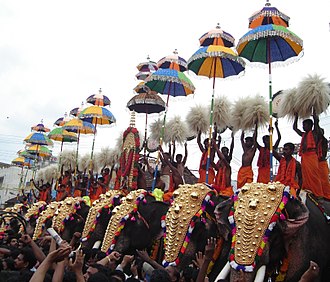The Bahá’í Faith, a religion founded in the 19th century, proffers an encompassing vision that integrates spiritual principles with cultural and media paradigms. Central to its teachings is the notion that divine revelation is continuous and progressive, catalyzing societal transformation. The Bahá’í perspective extends to the intricate interplay between culture, media, and spirituality, establishing a framework that engenders curiosity and invites a paradigm shift.
At the heart of Bahá’í teachings is the concept of unity in diversity. This principle asserts that humanity, despite varying cultural backgrounds, is part of a singular family. Such an ideology challenges individuals to transcend narrow sectarian identities, embracing a broader humanistic outlook. The implications for culture and media are profound. Creative expressions, be they through literature, music, or visual arts, can serve as conduits for fostering understanding and empathy. Bahá’ís advocate for the celebration of diverse cultural heritages while emphasizing the commonalities that unite people across the globe.
Media, serving as a vessel for communication, plays a pivotal role in this cultural nexus. The Bahá’í teachings espouse that media should propagate principles that enhance social cohesion. In an age dominated by rapid technological advancement, the dissemination of information is instantaneous, yet the quality and integrity of that information are paramount. Bahá’ís encourage ethical journalism and responsible media consumption, asserting that the representation of truth must be unobscured by sensationalism or bias. In this regard, the media can be a powerful agent for educational enlightenment, combating ignorance and prejudice.
Furthermore, the mission of communication within Bahá’í teachings is not limited to mere information dissemination. It extends to cultivating a profound discourse that engages the intellect and spirit. Encouraging dialogue that is both respectful and thoughtful can lead to richer cultural exchanges. This transformative dialogue can serve to dismantle the barriers erected by misunderstanding, fostering a deeper appreciation for differing viewpoints.
In the realm of artistic expression, Bahá’ís advocate for the integration of spiritual and aesthetic ideals, asserting that art has the capacity to mirror the beauty of divine creation. Artistic endeavors are not solely to entertain but to inspire and uplift. This belief necessitates an elevation of artistic standards, where beauty is intertwined with virtue and nobility of spirit. Literature, for example, can be an instrument of moral instruction, guiding readers toward contemplative thoughts and transformative insights.
The Bahá’í teachings regarding the importance of education to foster a rich cultural landscape cannot be overstated. Education, viewed as a perpetual endeavor, not merely confined to formal schooling, is essential for the ongoing cultivation of an enlightened society. It is through education that cultural appreciation flourishes, empowering individuals to discern and critique the myriad influences of the media they consume. The Bahá’í community actively promotes educational initiatives, particularly in underserved regions, equipping youth and adults alike with the tools to engage critically with both their heritage and contemporary issues.
In addressing the role of media as a tool for social justice, Bahá’í teachings underscore the responsibility of individuals to harness their platforms for advocacy. Media outlets can drive the narrative surrounding social change, influencing public opinion and policy. Media, when wielded wisely, can amplify marginalized voices, providing a platform for the discourse necessary for societal acculturation toward equity and inclusion. This aligns with the Bahá’í tenet that humanity must collectively strive for justice, thereby transforming cultural narratives that uphold discrimination into ones that celebrate inclusivity.
Moreover, engaging with global issues through media fosters a conscientious awareness of the interconnectedness of all humanity. Climate change, poverty, and social inequities require collaborative action that transcends national and cultural boundaries. Bahá’ís view environmental stewardship as a moral imperative, urging the portrayal of ecological issues in a manner that inspires collective action. The responsibility thus falls upon media professionals and artists to evoke a sense of urgency while simultaneously instilling hope through their works.
Ultimately, the desired shift in perspective championed by the Bahá’í teachings invites individuals to reconsider their roles as active participants in shaping culture and media. Each person is encouraged to not only consume media but also to contribute meaningfully to it, ensuring that their input nurtures a culture of compassion and understanding. The conscious engagement with cultural and media expressions can catalyze societal evolution, challenging prevailing narratives and fostering a spirit of innovation rooted in unity.
This holistic approach to culture and media, as illuminated by Bahá’í principles, calls upon individuals to cultivate curiosity. It aspires to dismantle silos of ignorance, illuminating pathways that connect diverse experiences while fostering a respectful dialogue. Thus, within the vast tapestry of human culture, each thread—woven from distinctive traditions and beliefs—can collectively contribute toward a narrative that is enriched by diversity yet anchored in shared values. The expansive vision of the Bahá’í Faith not only promotes artistic and intellectual pursuits but also compels humanity toward an enlightened, unified future where each cultural voice is cherished and acknowledged.
